In the heart of the capital city of Brussels, the Royal Palace…an imposing building with its Neo-classical facade that dates back to the 18th century. And in this palace, King Philippe, the seventh king of the Belgians works unfailingly every day.
Belgium has been a constitutional monarchy since 1831 and although the constitution limits the king’s powers, this doesn’t mean that he is content to play the role of a simple figurehead…far from it.
Through his opinions, suggestions, his warnings, cautions or encouragement, the king exerts a significant influence on the political world.

He also plays a mediating role with his ministers in favour of many citizens who appeal to him to obtain justice.
The king represents and embodies not the state – the apparatus of power – but the nation. He is in fact the symbol of the nation’s unity and permanence, and the moderator of political life.
Following the results of the last Belgian elections in May 2019, where voters were called upon to elect the federal, regional and European parliaments, it became very clear that welding together a majority coalition at national level would be a very tough task…and so it proved to be.
King Philippe promptly stepped in and began by naming two politicians representing the French-speaking south and the Dutch-speaking north to help pave the way for a new majority government.
The beginnings
Belgium’s history of linguistic division is as old as the country itself, the northern half being Dutch or Flemish-speaking while the southern half is French or Walloon- speaking. And we haven’t even got into the minority of German speakers living on Belgium’s eastern fringes along the border with Germany !
The two larger language groups each attempt to rule their own regions independently, having essentially segregated governments for Flanders and Wallonia.
However the political crisis of 2007 – 2011 showed that while the northern Flemings wanted more decentralisation and autonomy, the southern Walloons were dead set against it. And since then, a split of Belgium along these lines has loomed large over the political landscape.
But why is Belgium so divided? To answer this question, we have to go way back to a time when there was no Belgium at all and it when belonged to the Holy Roman Empire and some parts of it to the Kingdom of France.

This is very important because modern-day Belgium used to be part of both of these entities. This wasn’t just a political barrier between states that made up the Holy Roman Empire and the Kingdom of France; it was also a linguistic barrier between the Germanic and Romance languages and this is where some of the present-day problems originate.
As a result of a gradual decrease in the influence and control of the Holy Roman Empire, these territories were left without protection and in many cases, isolated.
The English and the French saw the opportunity to move in and take control.
Over the centuries, these lands were gradually divided into feudal states that became more or less wealthy according to the volume of trade with England and France.
Cities such as Bruges, Gent and Ypres in the County of Flanders for instance, prospered, thanks to English wool that was imported and converted into fine cloth.
The territories that make up present-day Belgium were under the control of the French, the Dutch and the Spanish until the 19th century.
The year 1815 is undoubtedly of significant importance.
After having defeated Napoleon at Waterloo, the victorious powers of Britain, Prussia, Russia and Austria convened in Vienna to discuss and negotiate the jurisdiction of the conquered territories for the years to come.
Of great significance, was the creation of a state that would serve as a buffer against any future French intervention; the United Kingdom of the Netherlands.
The idea for the creation of a Belgian state was also discussed during the congress but there was not enough support for this initiative.
However, as far as the territories that had once been part of France were concerned, it was decided that these were to be attached to the United Kingdom of the Netherlands.

of the United Kingdom of the Netherlands (Joseph Paelinck)
A house divided
However, this historic decision proved to be a mistake; the problems and complications that emerged would create a period of great unrest that would ultimately lead to the Belgian Revolution of 1830.
The United Kingdom of the Netherlands was very much divided along religious lines. The north was mainly Protestant, while people in the south were Catholic.
What’s more, there was also a linguistic division between the French-speaking Walloons and the Flemish, whose mother tongue is Dutch. And it was this linguistic division that would become one of the main factors for unrest in the southern provinces.
King Willem I of the Netherlands favoured the Protestants and thus became unpopular in the south. Also, the populations in this part of of the Kingdom felt less represented as a community.
When Willem attempted to impose Dutch as the the common language, he faced a sharp opposition from the French-speaking communities. This state of affairs brought about as a consequence of Dutch dominance was clearly unacceptable for the southern communities; this led to the first stirrings of anger and the backlash that would bring about the Belgian Revolution.
Revolution and its consequences
On 25 August, 1830, the royal court began organizing festivities to mark the 15th year of the reign of Willem I. As part of the celebrations, the king attended a performance of La Muette de Portici, an opera by French composer Daniel Auber, staged at the Brussels opera house.
During the performance, a large section of the audience suddenly produced and waved posters with patriotic slogans that called for revolution. As soon as the second act began with the duet “Amour sacré de la patrie”, there was an uprising among the audience. News quickly reached the streets outside and widespread riots erupted in Brussels, before spreading to other cities.
This revolutionary movement which rapidly inspired the masses became unstoppable. And yet, the demands put forward by the people were simple – an end to Dutch dominance and independence. The Belgian Revolution impacted not only the region, but it also shaped the rest of Europe, and created a new country.

Birth of a nation
Following these historic events, the great powers from the Vienna Congress gathered once again; this time in London on 20 December, 1830. Now they had no choice but to acknowledge the success of the Belgian revolution and were thus required to guarantee the independence of the newly-formed state.
However, they imposed one key condition: the future king must in no way be affiliated with those powers – especially France – that were suspected of harbouring territorial ambitions in Belgium. Otherwise, the European balance of power created in 1815 might have come under threat.

Consequently, the newly-established government of Belgium offered the position to a German prince from the Saxe-Coburg-Gotha dynasty. And this is how, on 21 July 1830, Leopold I took his oath as the first king of the Belgians. The date of his inauguration became the national day of Belgium and was recorded in history as the true beginning of modern-day Belgium.
One king, two nations
It was amid political and social tensions that Philippe, a direct descendant of Leopold I, was sworn in exactly 182 years after his illustrious ancestor, as the seventh King of the Belgians on 21 July, 2013.
His father, King Albert II abdicated after 20 years on the throne partly for health reasons but also following growing doubts about his ability to bring the divided country closer together and dispel notions of confederalism and even separatism, held by an ever-increasing number of conservative and far-right Flemish politicians and voters.
Philippe was born in Brussels, in 1960. After training at the Royal Military College to become a fighter pilot, he went on to study at Oxford and Stanford. During his father’s reign, he represented Belgium overseas in various economic missions but was often seen to lack charisma.
Political analyst, Jean Faniel says “In terms of personality, Philippe is what he is; he doesn’t hide his shyness. He’s been asked to cultivate another image which psychologically is obviously not easy, whether it’s for a king or for an ordinary person”.
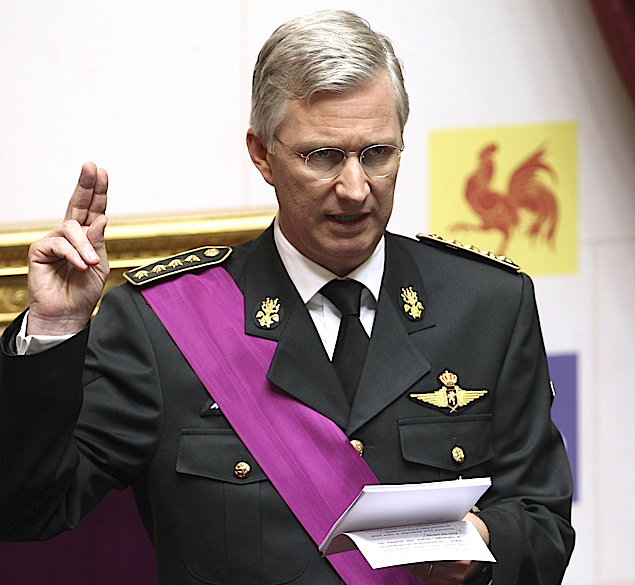
Philippe has had his work cut out for him to win over the Flemish-speaking north of the country which has long been deeply divided along linguistic and cultural lines.
Herman Matthijs, professor of politics at the Flemish University of Brussels (VUB) says : Flanders is asking for an official or formal monarchy, like the one in the Netherlands where the chamber of deputies decides and not the king. But the Francophone part of the country is against this. They want to keep the status quo”.

It was in 1999 that he married Mathilde d’Udekem d’Acoz, a young Belgian aristocrat who was widely seen as the charismatic figure the monarchy sorely needed.
Smiling and at ease in public, she gave it some of the glamour and spontaneity which the heir to the throne lacked.
She has a credibility which was manifestly something that the government, King Albert II and perhaps their whole entourage tried to highlight in respect to the fact that Philippe was going to become a king…a king who will be well-supported and surrounded, above all by his own wife.
In a fragile country suffering from recurrent political crises, Philippe had to prove himself a unifying force, especially following the Belgian federal elections, alongside its regional and European elections that were held on Sunday, 26 May 2019.
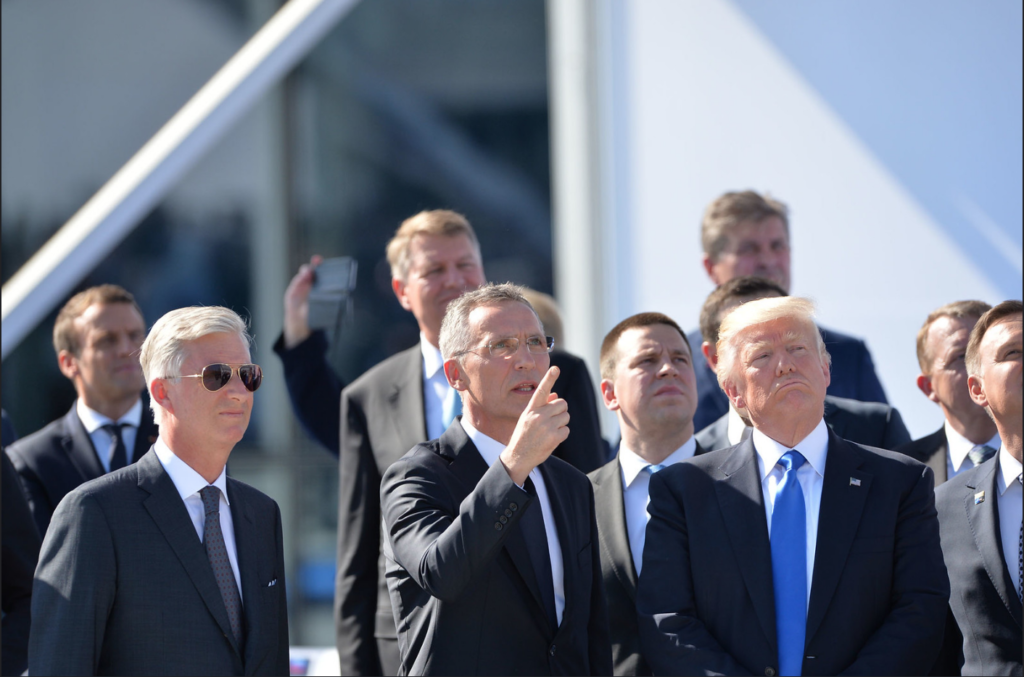
‘Black Sunday’
The results of the national elections were astonishing in that they were marked by a very significant shift to the extreme right in the more prosperous Flanders region, while Francophone Walloon voters in the south of the country gave leftist parties, including the extreme-left Belgian Workers’ Party (PTB) a clear victory.
The result was seen as a clear vote of no confidence in the outgoing government and its prime minister, Charles Michel.
In Flanders, voters supported the separatist Vlaams Belang party (VB) at the expense of the slightly less extreme nationalist New Flemish Alliance party (N-VA), that had participated in the last federal government.
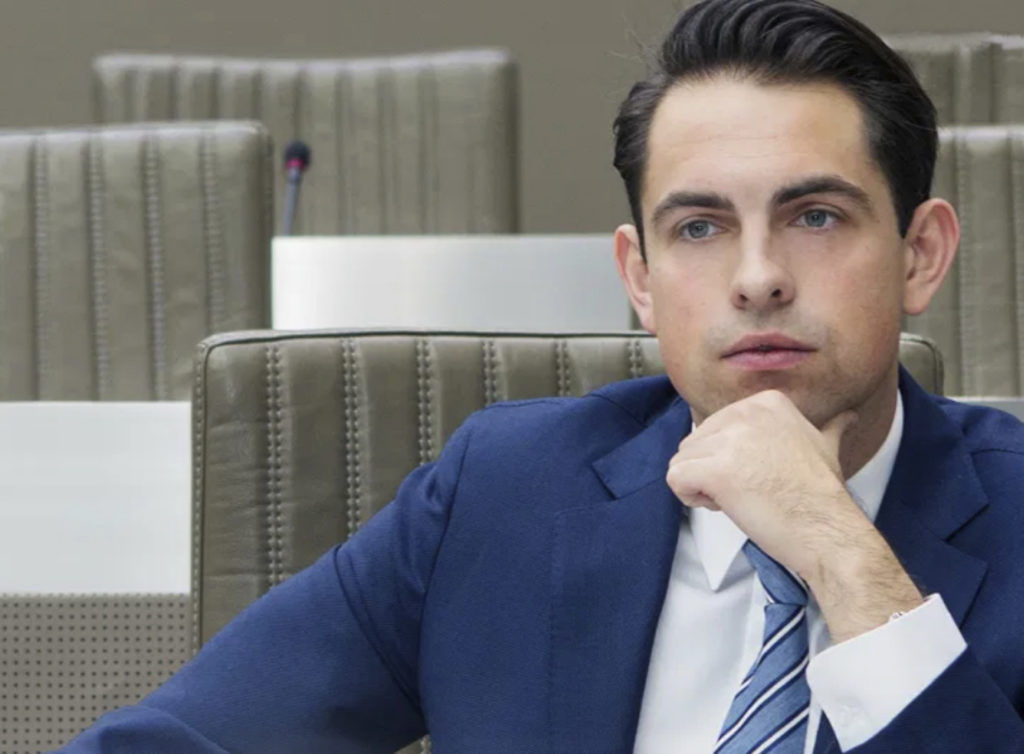
In a victory speech before his jubilant supporters, Vlaams Belang leader Tom Van Grieken declared : “This is not a black Sunday, but a Sunday full of hope ! We’re going to assume our responsibilities.”
At federal level, where each region has a pre-determined number of seats, this means that parliament will become even more polarized and will have to face further complications; a marked political divide has now been added to Belgium’s long-standing linguistic divide.
The net result is that negotiations in view of forming the country’s federal government have become inextricably difficult.
Belgium has already set up a record for being without an elected federal government, beating countries such as Spain and Iraq. It certainly is in no way comparable to, say, Somalia which went for over 15 years without a central government, Belgium nonetheless racked up 589 days with only a caretaker administration in charge, from 2010 to 2011.
The Vlaams Belang, as well as its predecessors were so far excluded from ruling coalitions in Belgium due to an agreement of non-cooperation by other parties – the cordon sanitaire – aimed at excluding the far-right from any political majority in Belgium.
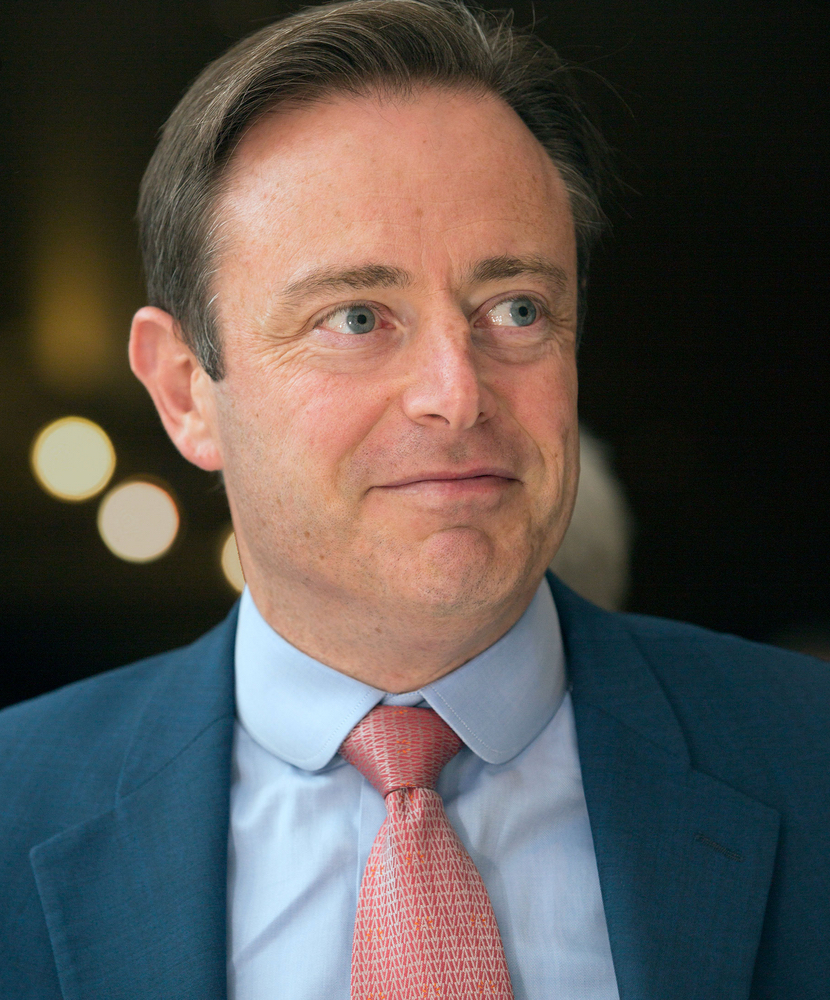
But following the announcement of the results, Bart de Wever, leader of the New Flemish Alliance, in his speech, did not exclude the possibility of breaking the embargo around the Vlaams Belang : “I never subscribed to the ‘cordon sanitaire’ and I was never a fan of it. But I have never been a fan of the party’s style, of some of its exaggerated figures and positions. These two things, which were clear yesterday, are still clear,” As expected, this got all the alarm bells ringing in government circles as well as the private sector. Large sections of the public began to fear for the future.
The King steps in
Sensing the major constitutional challenge facing him, King Philippe set to work on the delicate task of brokering a new governing coalition.
He would need to bring together parties representing Belgium’s two major linguistic communities, Flemish and Walloon, to collaborate in a multi-party coalition that can command a parliamentary majority.
But favouring one or the other of the major parties in the south or north of the country would of course, cause its own set of problems.
Be that as it may, he had to make a gesture to an angry electorate – a clear sign that their discontent had been acknowledged.
As is the custom, the King promptly began discussions with party leaders one by one, immediately after election results confirmed the complexity of the political landscape.
However, he had to adopt a cautious approach that kept him from getting mired in unavoidable tensions and skirmishes between the two main political blocs.
The first obstacle in this process was a big one : it has always been the policy that there shall be no place for a far-right political party in the royal house.

Ultimately, the king was wise to depart from tradition and to set a new precedent. Refusing to invite the leader of Vlaams Belang which obtained over 18% of the vote, representing 20 seats in parliament would have been tantamount to pouring fuel on the already raging fire lit by the Flemish separatists.
And so, in a move that sparked controversy, King Philippe decided to meet Tom Van Grieken, the leader of the anti-immigrant and separatist Vlaams Belang, as part of the ongoing consultations; the fact that this party has long argued for the abolition of the monarchy also exacerbated the unease.
Previous monarchs had abstained from meeting leaders of the Vlaams Blok, the predecessor of Vlaams Belang. That anti-monarchist party which was dissolved in 2004 after a court ruled it was racist, had even turned down an official invitation from the Royal Palace in December 1978. The last time a far-right party leader held an official meeting with the king occurred in 1936 when Philippe’s grandfather, King Leopold III met Léon Degrelle, the head of the Rex Party, which later collaborated in the Nazi occupation of Belgium.

Francophone socialist member of parliament, Laurette Onkelinx said she was shocked by the king’s decision. “This is a racist and violent party and I think that the message given by the king is damaging. His actions had gone against the courage of democratic Flemish parties that say no to the Vlaams Belang”.
But others, including Rudi Vervoort, the outgoing socialist minister-president of Brussels, said the king’s decision was understandable. “Certainly for me, it is not a pleasure to see this scene in Belgium. On the other hand, there is an electoral reality in Flanders that cannot be denied.”
Many specialists and political analysts agree that the king faced a very difficult decision on whether to include Vlaams Belang in the discussions.
But all in all, King Philippe was praised for his initiative and openness, which went a long way towards appeasing the aggressive passions and blunt criticisms emanating especially from Dutch-speaking Flanders.
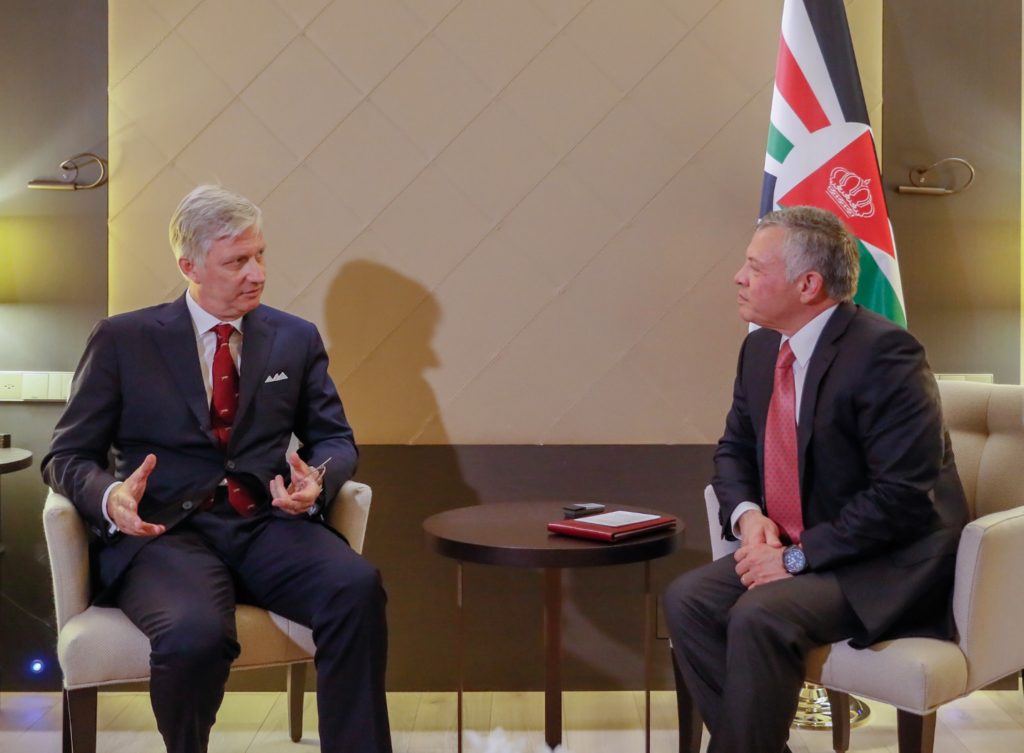
A rocky road ahead
The 150 seats in the Federal Parliament will have to be spread among many parties, from far-left Francophone to far-right Dutch-speaking political formations.
Duty therefore fell upon King Philippe to appoint someone tasked with forming a new coalition. As was the case after the 2014 federal elections, he appointed this time, two politicians, one from each side of the linguistic divide to hold exploratory talks with the leaders of all the other parties.
After yet again putting out feelers to the various parties involved, King Philippe named a different pair of politicians, a francophone socialist and a Dutch-speaking member of the New Flemish Alliance to explore the terrain in view of proposing a project for the formation of a majority coalition.
However, after less than four weeks of negotiations and finally unable to bridge the wide divergences between the various parties, they requested that the king relieve them of their mission.
For the king, it was back to square one. After more consultations and reflection, he decided to appoint the leader of the francophone Socialist Party, Paul Magnette to act as the new “informateur” who would be in charge of negotiations in view of finding the parties that would be most likely to reach an agreement on a new federal coalition.
As was widely predicted, the animosity, mistrust and self-seeking party interest that led to the fall of the previous government have made the formation of a new majority coalition a task of herculean proportions; seven months on and Belgium is still chugging along with a caretaker government.
Belgians may be experts at finding ways to keep government programmes and services running without serious interruption, as they have during the past seven months in the absence of an elected government, but the situation is bound to worsen as time goes by.
It is at such times that external factors could force political parties to compromise; challenges such as Brexit, the environment, the risk of recession, say in Germany and a myriad other events could force Belgian politicians to seek more stability and decide to put the interests of the nation before those of their respective parties.
Hossein Sadre


